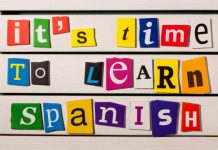Dictionaries are the unsung heroes of language, serving as our trusty companions in the quest for understanding words and their meanings. They provide us with definitions, pronunciations, usage examples, and much more, all neatly packaged in a compact book or a digital interface. In this article, we delve into the world of dictionary meanings, exploring how they work, their importance, and the intricacies involved in defining words.
The Role of Dictionaries
Dictionaries are invaluable tools for anyone who seeks to communicate effectively in a language. They serve several crucial roles:
- Defining Words: At its core, a dictionary’s primary function is to provide clear and concise definitions of words. It helps users understand the meaning and usage of unfamiliar terms.
- Pronunciation Guidance: Dictionaries often include phonetic symbols or audio recordings to help users pronounce words correctly. This is particularly useful for learners and non-native speakers.
- Word Origin and History: Many dictionaries offer etymological information, tracing the origin and historical development of words. This can provide fascinating insights into the evolution of language.
- Part of Speech: Dictionaries indicate the grammatical category (e.g., noun, verb, adjective) to which a word belongs. This helps users understand how to use the word in a sentence.
- Usage Examples: Sample sentences illustrate how a word is used in context, aiding users in grasping its practical application.
- Synonyms and Antonyms: Many dictionaries provide lists of synonyms (words with similar meanings) and antonyms (words with opposite meanings), helping users expand their vocabulary.
- Idioms and Phrases: Dictionaries often include explanations of common idiomatic expressions and phrases, enhancing language comprehension.
Defining Dictionary Meanings
Defining dictionary meanings is a complex task that requires precision, clarity, and a deep understanding of language. Here are the key components involved in defining words:
- Core Definition: The core definition is a concise statement that captures the essential meaning of a word. It should be clear and free from ambiguity.
- Lexicography: Lexicographers are linguists who specialize in compiling and defining words for dictionaries. They use extensive corpora (collections of written and spoken language) to analyze word usage in various contexts.
- Descriptive vs. Prescriptive: Dictionaries can take either a descriptive or prescriptive approach. Descriptive dictionaries aim to reflect how language is used in practice, while prescriptive dictionaries provide guidance on “correct” language usage. Most modern dictionaries lean towards descriptivism.
- Sense Differentiation: Many words have multiple meanings or senses. Dictionaries carefully differentiate between these senses and provide examples for each one.
- Usage Notes: Some words have usage notes that highlight nuances, connotations, or potential pitfalls in using the word. These notes offer valuable insights into context-specific applications.
Challenges in Dictionary Definitions
Defining words may seem straightforward, but it presents several challenges:
- Polysemy: Polysemy refers to the phenomenon where a single word has multiple related meanings. Dictionaries must clearly distinguish between these senses.
- Subjectivity: Language is influenced by culture, context, and personal interpretation. Lexicographers must navigate subjectivity while striving for objectivity in definitions.
- Evolving Language: Language is dynamic and constantly evolving. New words emerge, and the meanings of existing words can change over time. Dictionaries must stay up-to-date.
- Cultural Sensitivity: Words can carry cultural and social connotations. Dictionaries must handle potentially offensive or sensitive terms with care.
Conclusion
Dictionaries are indispensable tools for language learners, writers, scholars, and anyone who communicates in a language. For more details on https://definedictionarymeaning.com/topic/40655/nakadashi, checkout this site. They play a vital role in preserving, documenting, and evolving languages. Defining dictionary meanings is a meticulous process that requires expertise and a deep understanding of language dynamics. As we continue to explore and celebrate the richness of language, dictionaries remain our faithful guides on this linguistic journey.










